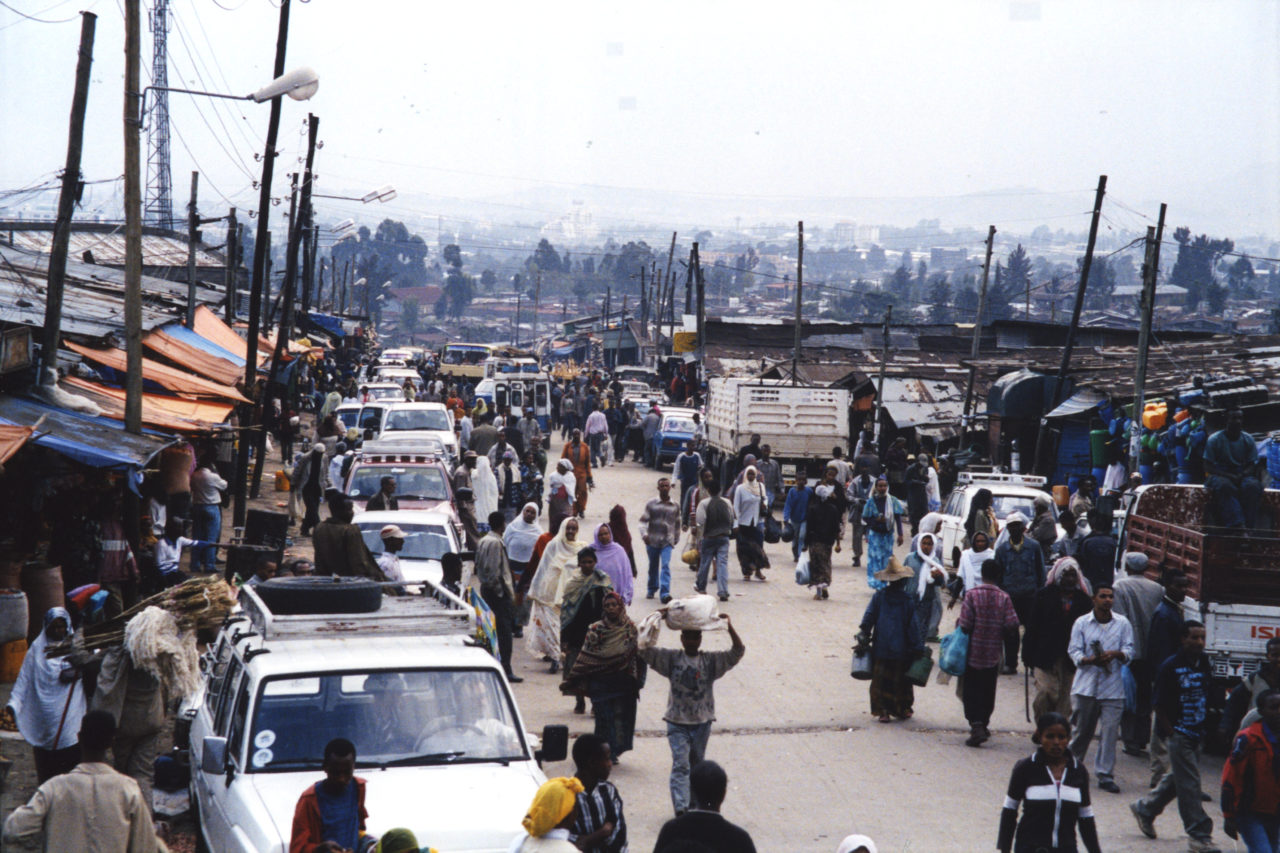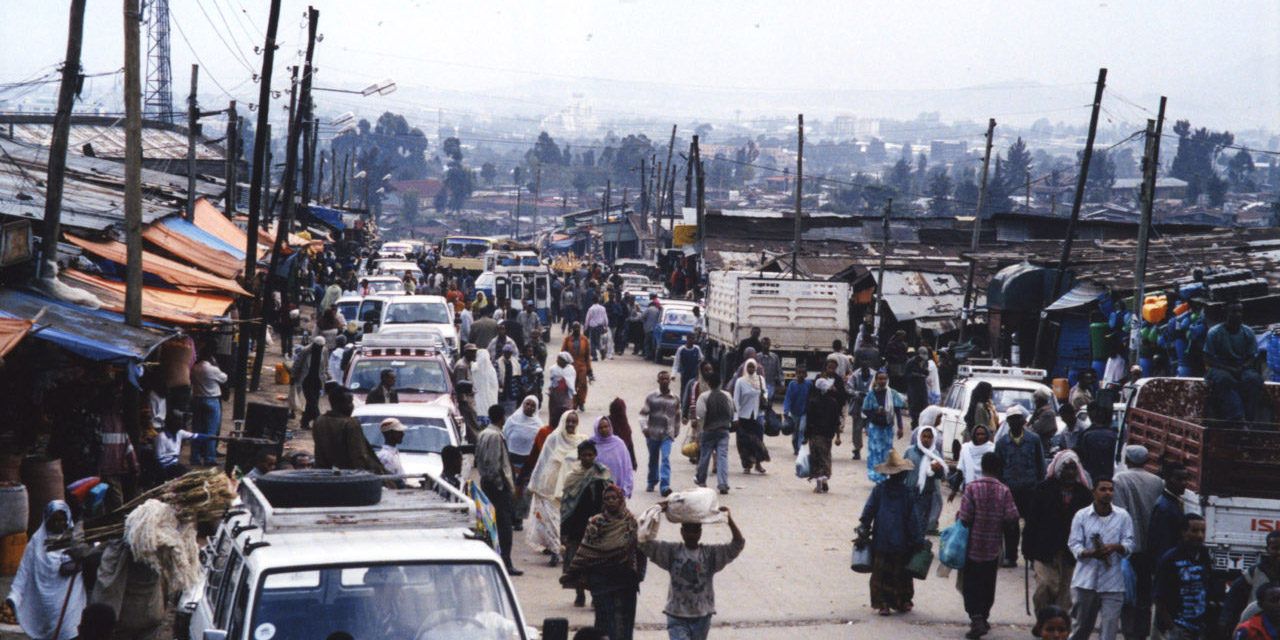

Urban Development and Poverty – Addis Ababa
This research project investigates forms of formal and informal urbanization processes against the background of both high-end development projects promoted by foreign and local actors and a context marked by prevalent urban poverty. Using Addis Ababa as a case, the goal was to devise tools and strategies for more socially inclusive forms of urban planning. In order to identify potentially deciding factors for sustainable urban and social structures, the coordination of informal and formal sectors was deemed essential.
Addis Ababa – the largest metropolitan region in Ethiopia with one of the highest demographic and economic growth rates in Africa – stands out because of a series of challenges and specific local characteristics: unprecedented modernization via urban and infrastructural development on the one hand and poverty-stricken populations that are rooted in a longstanding cultural tradition. Notwithstanding Addis Ababa’s long history of urban planning efforts, including current master plans, what has emerged is an ostensibly uncontrollable conglomerate of buildings and infrastructure projects that has given rise to a particular form of uneven urban development, one characteristic of contemporary urbanization, whether in the Global South or Global North, however taken to its extremes in cities such as Addis Ababa.
The cooperation between the faculties of Addis Ababa University (AAU) and ETH Zurich was initiated by ETH Zurich Professor Franz Oswald within the framework of a new curriculum for the Ethiopian Institute of Architecture, Building Construction and City Development (EiABC) in 2010.
